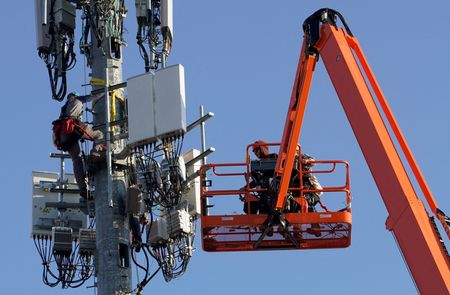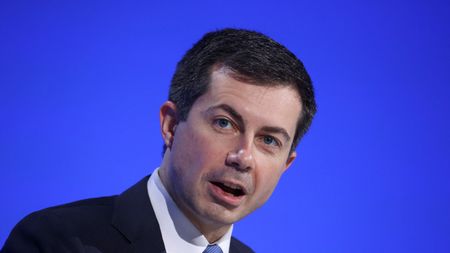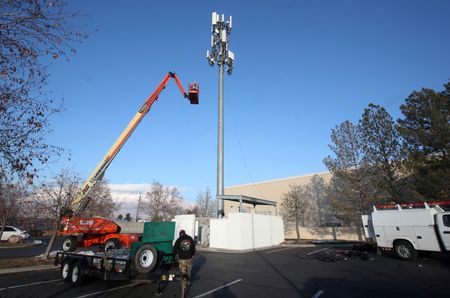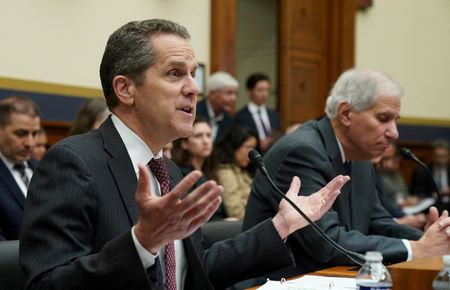By David Shepardson
WASHINGTON (Reuters) -U.S. President Joe Biden hailed a deal between wireless carriers and U.S. regulators that will allow the deployment of new 5G wireless in two weeks and averted an aviation safety crisis.
AT&T and Verizon Communications agreed late Monday to delay C-Band wireless spectrum deployment until Jan. 19 but won key assurances that they will be able to start service this month, according to a Transportation Department letter seen by Reuters.
The delay came after pressure from the White House, aviation unions and a threat by airlines to file suit to block the deployment that could have disrupted thousands of daily flights.
Biden said the “agreement ensures that there will be no disruptions to air operations over the next two weeks and puts us on track to substantially reduce disruptions to air operations when AT&T and Verizon launch 5G on January 19th.”
The aviation industry and Federal Aviation Administration (FAA) have raised concerns about potential interference of 5G with sensitive aircraft electronics like radio altimeters that could disrupt flights.
Verizon Chief Executive Hans Vestberg told employees Tuesday in an email that it sees no aviation safety issue with 5G, but said the FAA “intended to disrupt an already difficult time for air travel if we move ahead with our planned activation… We felt that it was the right thing to do for the flying public, which includes our customers and all of us, to give the FAA a little time to work out its issues with the aviation community.”
U.S. Transportation Secretary Pete Buttigieg and FAA Administrator chief Steve Dickson told AT&T and Verizon in a letter Monday, seen by Reuters, the agencies will not seek any further delays in deployment of 5G wireless service beyond Jan. 19 absent any “unforeseen aviation safety issues.”
The agreement “will give us additional time and space to reduce the impacts to commercial flights,” they wrote.
The attached “final term sheet” said unless “unforeseen aviation safety issues” arise the U.S. agencies “will not seek or demand any further delays of C-Band deployment, in whole or in part, including a delay of return to routine operations.”
Airlines for America, a group representing American Airlines, FedEx Corp, Delta Air Lines and others, had been preparing to file suit late Monday absent a delay, industry officials told reporters.
A wireless industry official told Reuters the deal gives them assurances they will be able to begin deployment this month.
AT&T and Verizon had agreed Sunday to adopt exclusion zones for six months around some airports in a bid to mirror safeguards adopted by France, but had rejected Buttigieg’s request for a delay of up to two weeks.
The letter said that by Friday regulators will provide the carriers “with a list of no more than 50 priority airports that they would propose to be subject to the C-Band exclusion zones” that AT&T and Verizon had proposed Sunday.
Additional requests may be made for “voluntary surgical mitigation measures at any individual airport” but AT&T and Verizon “shall have sole discretion to determine if any requested mitigations, adjustments or alterations will be made.”
AT&T and Verizon won nearly all of the C-Band spectrum in an $80-billion auction last year. In total, Verizon paid $52.9 billion for the spectrum, including incentive payments and clearing costs, to reach more than 100 million Americans, while AT&T paid $23.4 billion.
AT&T and Verizon in November initially agreed to delay the deployment by 30 days to Jan. 5 after the FAA raised safety concerns and the carriers adopted voluntary precautionary measures for six months.
(Reporting by David Shepardson; Editing by Nick Zieminski)













